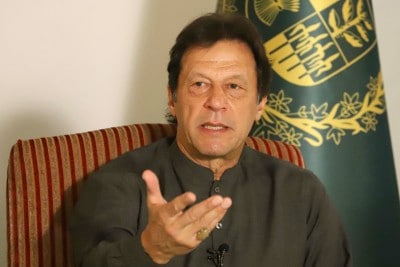Mahua Venkatesh
New Delhi, Oct 24 : The current civil war-like situation in Pakistan may deal a blow to the execution of the ongoing China Pakistan Economic Corridor (CPEC), a collection of mega infrastructure projects, and thereby dent its economic revival process.
Opposition parties in the country led a joint rally protesting against Prime Minister Imran Khan’s “puppet” government and the Army.
Besides, the Financial Action Task Force (FATF) has also ruled against taking Pakistan off the ‘grey list’ and gave Islamabad time till February 2021 to comply with its 27-point action plan.
The move will further impact its already battered economy, even as the spread of the coronavirus pandemic was contained.
Khan has repeatedly highlighted the need to complete the $60-billion CPEC saying that it would push socio-economic development.
Pakistan’s GDP growth crashed to below 1 per cent in 2019. This year, the country’s growth could even witness a contraction.
Former Indian envoy to Pakistan, T.C.A. Raghavan told IndiaNarrative.com that the current political turmoil is likely to continue “for some time”.
“It is true that the country is currently heading towards a political crisis and it seems that it will continue for some time,” he said, adding that political turmoil would invariably impact economic growth though not immediately.
“Pakistan’s economy has been in a critical state and this will further dent the situation, including the execution of CPEC. The CPEC has been slowing down for various reasons and the existing crisis will have its own implications on the projects,” Raghavan said.
According to the US Institute of Peace, “political upheaval, a violent insurgency fed by the war in Afghanistan, and the inability of successive governments to carry out reforms are to blame for this decline”.
“Today, a polarized political environment and elite intrigue among civilian, judicial, and military institutions has made sustainable economic growth and reforms that much more unlikely.”
It further said that the global outbreak of the coronavirus pandemic has further made it challenging.
Pakistan’s headline inflation in September stood as 9 per cent.
“The current political turmoil will definitely dent the country’s the economy. For any economy to grow, political stability is critical and there seems to be no solution in sight,” Shakti Sinha, director at the Atal Bihari Vajpayee Institute of Policy Research and International Studies.
Some signs of revival before corona pandemic
When Khan took charge as the 22nd Prime Minister on August 18, 2018, Pakistan’s economy was in a shambles with multiple macroeconomic challenges — widening current account and fiscal deficits, dwindling foreign exchange reserves and unemployment among others.
However, after the initial turmoil, the Khan government’s focus on the economy had started to show results.
In January this year, Khan at the World Economic Forum said that Pakistan would see healthy growth in the year 2020.
At that time, some signs of economic progress were beginning to show. Khan had managed to reduce the current account deficit, the difference between inflow and outflow of foreign currencies, gap and foreign direct investments had begun to flow in.
Last December, Moody’s Investor Service upgraded its outlook for Pakistan from negative to stable, while the World Bank acknowledged that Pakistan was among the top 10 “most improved” countries in terms of the Ease of Doing Business index.
However, things have changed rapidly since then.
On the one hand, Khan has strengthened bilateral relations with China and on the other, he has alienated Pakistan from other major forces, including the old allies US and Saudi Arabia.
Recently, Islamabad repeatedly nudged the Saudis to convene a meeting of the Organization of Islamic Co-operation (OIC) to discuss the issue of Jammu and Kashmir as India abrogated Article 370 last year but Riyadh refused to oblige the cricketer-turned-politician.
The global outbreak of the coronavirus has impacted Pakistan too though Islamabad managed to contain its spread. In fact the current crisis has impacted almost every corner of the world.
“With the global economy going through a crisis-like situation, Pakistan may just fall into a debt trap much like other countries,” another analyst said.
(This content is being carried under an arrangement with indianarrative.com)
Disclaimer: This story is auto-generated from IANS service.

